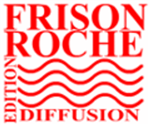Apogée éditions: contact et modalités de dépôt d'un manuscrit
Contact
Site Web
http://www.editions-apogee.com/Téléphone
0299324595Adresse
11 rue du Noyer, 35000 Rennes FranceSite Web
http://www.editions-apogee.com/Téléphone
0299324595Adresse
11 rue du Noyer, 35000 Rennes FranceDépôt de manuscrits
Par voie postale:
Service des manuscrits11 rue du Noyer
35000 Rennes
France
Retours
Temps de réponse: de 4 à 6 moisAccusé de réception: NON
En chiffre
Nombre de manuscrits recus par an: 400Maisons d'éditions similaires :

Fabrique (La)
Dehors
En remettant en cause le modèle dominant de « civilisation », la crise écologique globale que nous traversons nous oblige à reconsidérer avec urgence les principes fondamentaux selon lesquels nous pensons et éprouvons le monde.
Face des événements et des phénomènes dont les effets se déploient dans des dimensions inséparablement naturelles, culturelles, sociales, économiques, techniques et politiques, nous ne pouvons éluder plus longtemps les conséquences redoutables des présupposés selon lesquels nous avons jusqu’à présent cru pouvoir organiser et maîtriser rationnellement notre environnement.
Cette tâche, d’une ampleur inédite, suppose de sortir des cadres consensuels, des propositions et des choix implicites qui conditionnent et épuisent nos pensées et nos désirs. Par la publication de ces ouvrages et en accompagnant des expériences, des modes d’organisation et des réflexions qui se réalisent de par le monde, nous voulons contribuer à donner sa pleine signification politique et philosophique à l’élaboration de nouvelles pratiques collectives dans et par-delà la société des hommes.
Dans un monde las et désorienté par ce qui se maintient sous le nom de « crise », il s’agit de libérer des affects, de redonner sens à la critique, et ainsi saisir l’occasion inouïe de s’ouvrir à la passion du réel : au Dehors.

JC Lattès

Mamaéditions
Economica
Éditions Economica est une maison d'édition française spécialisée dans les sujets économiques et stratégiques.
Basée à Paris, elle a été fondée en 1971 par Jean Pavlevski, agrégé d'économie et originaire de Macédoine.
Wikipédia
Privat
Créées à Toulouse en 1839, les Éditions Privat restent une des rares maisons d’édition françaises implantée en région à rayonnement national.
Situées en plein coeur du centre historique de Toulouse au 10 rue des Arts, elles sont aujourd'hui complètement distinctes de la librairie Privat située 14 rue des arts à Toulouse.
Croisée des chemins (La)
Y rêver, y rire et y pleurer, garder le souci de l’âme et découvrir l’autre.
C’est ce que nous vous proposons.

Frison Roche (Editions)
Nathan
Depuis leur création, en 1881, les éditions Nathan ont pour vocation les savoir et les apprentissages, en respectant le plaisir de la découverte et de la connaissance. Cette mission est centrée autour de l'enfant et de la pédagogie, de la petite enfance à l'Université. Avec ses départements, ses filiales et marques associées - Dictionnaires Le Robert, Retz, MDI, SEDES -, Nathan est le premier éditeur scolaire français.
Par le biais de la marque Clé International, Nathan est leader de l'apprentissage du français à l'étranger. Le département parascolaire édite, outre des cahiers de vacances, des exercices d'entraînement, des aides à la préparation aux examens, des ouvrages de méthode, des mémentos...Avec le succès de ses collections - 128 et fac. notamment -, Nathan confirme son développement dans le secteur du livre universitaire, tous cycles confondus, en lettres, sciences humaines et sociales, économie-gestion et sciences.
Nathan développe également des collections destinées au grand public, dans le domaine du livre pratique autour de la nature et de la science, et, depuis peu, des ouvrages consacrés à la photographie.Enfin, son fonds d'ouvrages pour la Jeunesse situe Nathan parmi les tout premiers éditeurs dans ce domaine, notamment avec les encyclopédies Méga, les collections Contes et Légendes ou, plus récemment, Première Lune, Demi-lune et Les Petits Cailloux. Les éditions Nathan appartiennent aujourd'hui au pôle Éducation/Référence du Groupe Havas.
Nathan est sur le marché français le leader dans le domaine éducatif. Son département jeunesse et l'un des plus importants en France : plus de 2000 titres à son catalogue, 250 nouveautés par an qui concernent tous les publics de 0 à 15 ans.Mars 2002 - Nathan propose deux collections de livres animés pour tout-petits. Intitulée "Livres surprises", la première joue à cache cache. La seconde collection s'appelle "animaux puzzles".En 2005, les éditions Nathan ont créé un nouveau département de livres de jeunesse sous la célèbre marque Rouge et Or. Le nouveau catalogue se structure; par les création de nouvelles collections pour les plus petits et d'un important domaine documentaire.
Editions Douro
Bien que créée en 2016, par une rédactrice-graphiste, une directrice commerciale de société et un ex-journaliste retraité, la société Éditions Douro n’a réellement démarré son activité qu’en 2020, à cause, notamment, de la problématique de la distribution des livres en France.
Nos publications sont aujourd’hui distribuées et diffusées par Hachette Livre. Nous avons publié 9 ouvrages en 2020, 77 en 2021 et 74 en 2022.
Les Éditions Douro ont pour objet la publication de tous textes de littérature française et étrangère : romans populaires (policier, polar, romance, science-fiction) récits de voyage, essais, livres d’histoire, poésie, théâtre…
Nous examinons avec soin, tout tapuscrit et nous engageons à fournir une réponse motivée en cas de refus.
Malgré son ancrage local, en Haute Marne, notre projet s’inscrit dans une perspective de promotion et de diffusion nationale et internationale de nos auteurs.
Modalité d'envois
Lorsque les manuscrits sont retenus pour une lecture approfondie, leurs auteurs devront patienter 4 à 6 mois avant toute prise de décision. Au-delà de ce délai, s’ils ne sont pas contactés, c’est que leurs manuscrits n’auront pas été retenus et ils leur seront retournés s'ils ont prévu de joindre une enveloppe à cet effet. Les auteurs des manuscrits non publiés ne pourront prétendre à quelque justification ou conseil que ce soit ; notre équipe est beaucoup trop réduite pour que cela puisse être possible. Les manuscrits non retournés sont archivés et conservés un an avant d’être détruits.